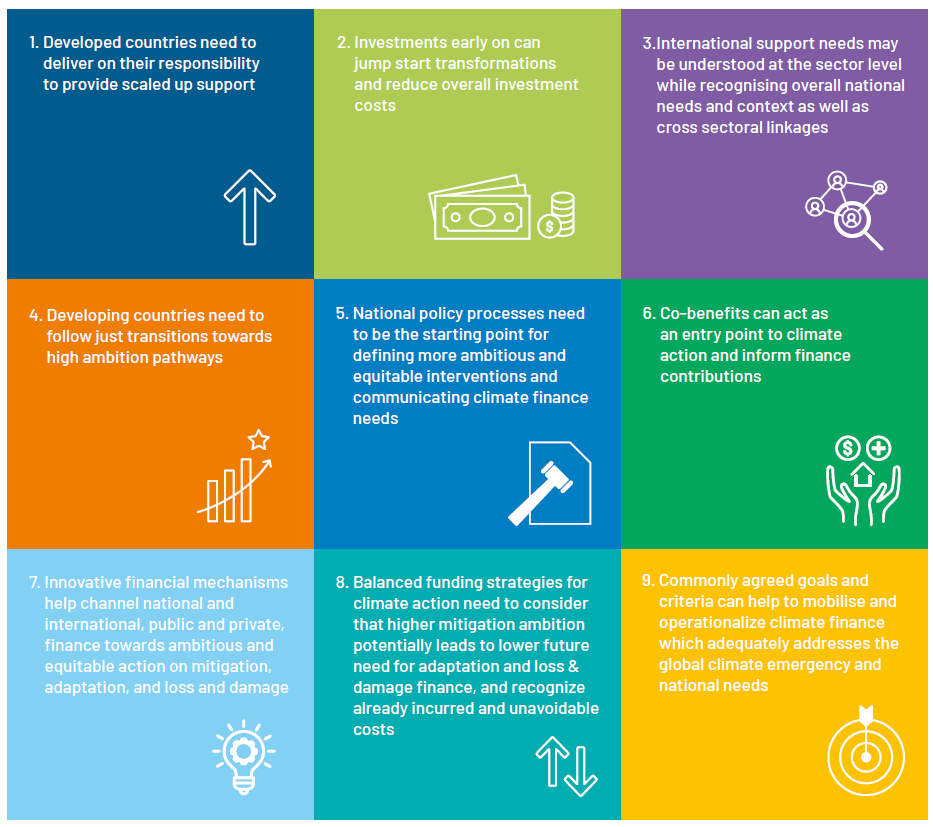Principles of international climate finance
The IPCC Special Report on 1.5 degrees shows that urgent action is needed to mitigate climate change. While the Paris Agreement does not provide guidance on differentiated ambition levels for each country, it urges all countries to embark on high ambition pathways. Current NDCs and pledged action falls short of what is needed to reach net zero emissions. To facilitate deep global emission reductions, all countries must implement ambitious mitigation efforts.
National financial frameworks and public budgets alone cannot provide the scale of finance needed to facilitate transition. High-debt distress in developing and emerging economies limits governments’ domestic resources and access to global debt markets. Significant financial resources must be channelled to developing and emerging economies to support them in taking mitigation action beyond what is possible with national finance. In line with the UNFCCC principle of common but differentiated responsibilities (CBDR), developed countries have a responsibility to lead in global action and provide support – in the form of finance, technology and knowledge transfer, and policy support – to developing countries.
This paper outlines why there is need for better information on financial needs and introduces nine exploratory principles to consider in the context of international support to achieve net zero targets. The outlined principles offer a starting point for understanding and defining the finance and support needed to achieve the goals of the Paris Agreement with a focus on scaling ambition and facilitating just transitions. Several actions by donors and recipient countries are suggested to better inform international climate finance needs:
- Support the articulation of high ambition pathways with reference to unilateral and international climate finance and technological needs. Clarify how international finance could support innovative finance mechanisms with ambitious decarbonisation objectives.
- Use national policy processes as a starting point for strengthening ambition and the facilitation of finance flows. Ensure climate objectives are rooted in national priorities to increase domestic buy-in and support sustainable development goals.
- Ensure the articulation of finance needs follows a bottom-up approach rooted in national context and sectoral circumstances.
- Develop shared goals and criteria for international climate finance, either at the UNFCCC level or bilaterally, considering national context and priorities.
- Increase developed countries finance pledges to reflect CBDR and equity considerations.

Principles of international climate finance





